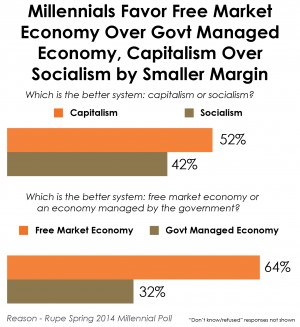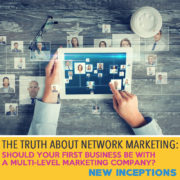The Millennial Leader: How the US Will Prevail Beyond the 2016 Election
Today is Election Day 2016. If you’re yet to vote today, vote your conscience.
“But what if I really vehemently despise one candidate and feel that I have to vote for the other major party to help make sure they don’t get in office?”
Well, that’s totally your decision. If you don’t like either major party’s nomination like I did, then it’s ok to vote 3rd party.
Either way, this is quite possibly the last election that the Boomers are going to have candidates in. And that means that a lot of us non-Boomers are going to have to step it up.
That means Gen X’ers just as much as it means Millennials.
So, for this week’s post, I thought it’d be important to look to the future and discuss how Millennials can set themselves up to be leaders in the years to come.
Who are Millennials, Really?
Over this past weekend, I found myself going to the 40th wedding anniversary of my neighbors from my hometown.
40 years – wow. For any marriage to make it that long anymore seems to be almost unusual.
Which is unfortunate.
Personally, I think it’s awesome that they’ve stuck together. So often, anymore, you hear that when the kids leave, the parents end up going their separate ways because they realize that they’re both different people than who they were when they were married.
Especially if they were married in their 20’s. In today’s world, many people aren’t considered real adults until after the age of 25. (I mean, there’s got to be a reason why the Obama administration decided that it would be ok for kids to be able to use their parents’ insurance until the age of 26, right?)
In this couple’s case, despite the fact that he’s a good 20 years older than her, I think a good reason that they have stuck together is that the husband was about as young as you could be in being part of the Greatest Generation. The generation that grew up during World War 2.
Also, I know that the wife’s parents had stuck it out over the years as well. In fact, they were so close that when one passed away, it wasn’t much longer that the other followed.
I had a great aunt and uncle that were the same way. They passed within a year or two of each other.
It’s hard to tell if that affection has rubbed off on younger generations. But one thing is certain, that generation rarely divorced.
Why?
Well, maybe because they were in tune with themselves enough to know what they were looking for when they picked a spouse. Or maybe they had principles that didn’t allow them to divorce.
Millennials are Actually Pretty Conservative
Whatever the reason is, most members of the Greatest Generation were pretty conservative in their beliefs compared to their kids and their kids’ kids.
Interestingly enough, us Millennials might behave more like the Greatest Generation than many think. They fought socialism in World War 2 and studies are starting to show that while many Millennials don’t really understand what it is, we don’t like the idea of what it really means either.
In fact, we’re trending more conservative than our parents.
I mean, it makes sense. So many of us are embracing simpler lifestyles. Having companies like Apple, Uber, Google, and Tesla around have given us that ability. Can you imagine those companies being run by the government? Ha!
We’re Trained About Participation More than Winning:
When other generations talk about millennials, we’re often referred to those head in the air, good-for-nothings that think they are entitled to things without working for them. They continue to say that we don’t take responsibility for our actions in what we do or do not do.
Many times they’re right.
But here’s the truth – they, our parents and educators, made us this way. They taught us what it meant to be unique and shoot for the stars. That anything was achievable.
But they also rewarded us for putting in very little work. For many of us school was fairly easy – just show up and you’ll get a C. Do the least amount of work you can do and get good at taking tests and you’ll get a higher grade.
For many, sports were even easier. In the past, people got rewarded for winning. We were the first generation where you started hearing about participation trophies. Whether or not you trained hard to actually win or did very little didn’t matter. We got rewarded for just showing up.
Some of Us Learned the Hard Way
College (or the military) was the first real learning curve for many of us. It was the first time that many of us had to learn how to really work hard to move up. But even that has gotten worse as I found out as a graduate instructor (and Maria has found out as a higher ranking soldier).
Whether we were doing something to win it or just to feel good about ourselves, Millennials have learned that participation counts. Limiting our growth potential in the world after graduation has made many buck the system. The difference is how we’ve responded.
Those Millennials that continue to spin their wheels looking for the easy reward are part of the Lost Generation. One book that they might need to read is “Who Moved My Cheese?“.
Those of us who are trying to figure out how to win are part of the next Hero Generation.
The Hero Generation
The Hero Generation is one of four generations that come and go throughout time. The other three being the Artist, Prophet, and Nomad generations. They are responses due to 4 types of events that happen in every cycle called Turnings. I first learned of these turnings when I saw a documentary a year or so ago called Generation Zero, which was released in 2010.
If you want to find out more about the four turnings or their associated archetypes, you can do so in Wikipedia here. If you want to go deeper, the two books that the authors Neil Howe and William Strauss are most well known for are here:
The Fourth Turning: An American Prophecy (1997)
If you want a Crib Notes version, here’s a video for that:
Signs of Heroism
Now, if we really are this Hero Generation, would there not be signs that we’re trying to save this world that is falling apart around us?
I think there is. I think it’s this growing boom of creatives that are starting businesses and sustainable social enterprises.
As I said, Millennials don’t know how to wait to be successful. Those who have played the game to win are going to keep winning.
They are replacing the old employee and non-profit mentality. Both of these mentalities were popular but never sustainable. A company could fire an employee at any time. A non-profit could eventually lose their funding.
In fact, I remember a episode of Home Improvement where they made a joke about Tim’s brother who called himself an entrepreneur.
Most small businesses and social enterprises are designed to be self reliant. This means that no one person can control the livelihood of another.
And it’s also what the AoL Podcast is all about. Finding and talking with those individuals who have made the switch to lead their own career and finding out how they made the leap.
One such Millennial that displays our form of Heroism is Dane Maxwell, who my co-host Daniel and I got to interview in session 56.
Leadership is Learnable
Many of those who have taken this leap are considered experts in their field.
Whether it’s deserved or not, experts are looked at as leaders. This makes sense, though, right? Experts can lead others to the answers they’re looking for. So many times we call them thought leaders.
And what really is leadership?
As defined by John Maxwell, leadership is Influence.
Because of this, he has always said that leadership can be taught. So if you find yourself having problems influencing others, then perhaps it’s time to start learning about influence and leadership. John’s work would be a great place to start.
What Type of Leader are You?
Being an expert or Thought Leader, like John, isn’t the only way to lead people. Maybe you’re not interested in becoming the next guru in a particular field of study. There’s still something that you can lead in.
There’s three other types of leaders:
- Courageous Leaders
- Inspirational Leaders
- Servant Leaders
Courageous Leaders
These are people who set an example by pursuing a vision in the face of considerable opposition and risk. Typically, they’re known to have strong convictions about their mission (purpose), vision (long-term goals), and values (right and wrong). They usually set the example by speaking up for their core beliefs and fight for their values, even when their stand is unpopular.
Some popular examples of this type of leader might be Rosa Parks and Abraham Lincoln were definitely example of this. Yet, some would even say that Edward Snowden is an example.
Inspirational Leaders
Many people compare Donald Trump to an anti-Ronald Reagan. While Reagan’s actions usually brought people together towards a common goal, many folks believe that during his campaign, Donald did the exact opposite.
Ronald was an example of an inspirational leader. He promoted change by being able to look forward to the future and help others commit to ideas and ideals.
Yet another example is MLK, Jr.. Like Reagan, he was able to envision a future and unify others behind him for that future.
Servant Leaders
This is the example of leadership that so many of us know and hear about. Usually these are the types of individuals who are discussed on the evening news for going out of their way to do something.
Typically, these folks become leaders by asking “How can I help?” and then following through.
There here have been some really big names over the years that might give you a visual.
Mother Teresa, Oprah with Harpo Inc., and Eleanor Roosevelt’s work in human rights.
Generally these people ask for very little if nothing in return – but, as you can tell, get plenty of publicity.
Who Are You Going to Lead?
Now with all of these examples of leaders, you might be wondering how you can set forth on your own journey of becoming a leader.
It’s actually fairly simple. Ask yourself which of those 4 types truly fit you the most.
For me, as an example, I’ve always seen myself as a teacher. So I’m a natural fit for being a thought leader.
But at the same time, I’ve always thought that I might get into politics somehow, and now that I’m 35 – I feel that I might just have enough experience to start looking at that a bit more seriously.
It’s ok to be more than one of these 4 types – in fact, most leaders are. But you can always tell if someone is better at one than the next.
Action Steps:
Now that we’ve looked at why Millennials are perfect to be leaders, you might be wondering how exactly you’re supposed to figure out what type of leadership role you want to be a part of.
If you have no idea, just go be around extracurricular groups of people that discuss things you have some sort of interest in.
Maybe you’re in a good sized town. If that’s the case, there should be some meetup groups near you that you can attend. If you’re in a small town, then perhaps you can join the local Rotary Club or perhaps get involved with the Masonic Lodge. Many leaders have been involved with both of these during our country’s history.
Once you find something that you think you enjoy being a part of, start applying for leadership roles within that organization. Start low and work your way up – unless you think you’re qualified to start at a higher level.
Other than that, all I have to say is get out there and meet people. If you think you might want to run for political office one day, start small and work your way up there too.
Here’s a neat little wiki that can get you started on a plan.










